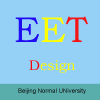-
Digital game learning
普通类 -
- 支持
- 批判
- 提问
- 解释
- 补充
- 删除
-
-
Digital game learning
DIGITAL GAME LEARNING describes the application of digital computer based games to learning and terms of educational purposes offers unique knowledge construction opportunities. But what makes a digital game simultaneously educational, motivating, and engaging? In attempting to answer this question this article reviews research on the necessary components needed to design an educational game while also providing information on some current educational digital games.
-
Digital Game Research
The little research available on digital game based learning indicates that creating the proper context for learners plays a central role in all successful games. Digital game designers must create a common context that all players will find motivating and engaging.
.jpg)
Research identifies several current societal contextual characteristics that should be considered when designing or selecting a digital game.
- Speed: Digital generations expect speed to be evident in the world in which they live. Digital game designers must decide how rapidly information must be processed during the game in order for the learner to construct knowledge.
- Parallel versus linear processing: The ability to process parallel streams of information, or multitasking, is a hallmark of digital generation populations. Digital game designers incorporate this into their design by including multiple screen and multiple path capabilities.
- Active versus passive engagement: Computers have introduced more active learning experiences. Consistent active engagement contributes to high levels of engaging fun a learner has when playing a digital game.
- Quick adaptation and problem solving: Digital generations live in a world of constant action and change where performance is based on quick adaptation using trial and error methods to solve problems. In digital game based learning trial and error is considered the motivation for players to keep on trying.
- Immediate reward: Digital learners have a need to know the immediate applicability of something they have learned. In this way they can contextualize what they have learned in terms of authentic tasks. Offering numerous immediate rewards within a game helps to keep learners highly motivated.
- The importance of fantasy: Fantasy stands for the virtual world in which the activity is embedded. Within the context of the game, fantasy leads to greater interest on the part of the learner as well as increased efficiency of learning.
-
The Learning Process
So how does learning occur within a digital game? If the digital game is motivating and engaging, learning occurs when the learner repeats a desired emotional or cognitive behavior based on the interaction and feedback they get from the game. Thus the learner constructs knowledge through doing, reflecting, understanding, and applying. The key moment occurs during what is called the “debriefing” process which allows the learner to draw relationships between playing the game and real-world events, which also connects game experience with learning..jpg)
-
Conclusions
The need for digital game based learning is growing within the formal education world as well as in corporate training environments. The vast potential they hold to affect positive learning outcomes excites many people, but much research into their effectiveness remains. Several digital games have found a foothold amongst various institutions and are listed in the table below. The table reflects each game’s respective contextual characteristics. Digital game designers and those wishing to implement digital game based learning into their educational environment would be wise to understand what makes these games successful for future games they may build or buy.
.jpg)
-
reference
Garris, R., Ahlers, R., and Driskell, J.E., (2002). Games, motivation and learning, Simulation and gaming. An Interdisciplinary Journal of Theory, Practice and Research. 33(4), December 2002.
Gil Garcia ,SDSU Educational Technology ,Garcia, G . (2005). Digital game learning. In B. Hoffman (Ed.), Encyclopedia of Educational Technology. -
-
- 标签:
- digital
- based
- game
- educational
- learner
- games
- learning
-
加入的知识群:



学习元评论 (0条)
聪明如你,不妨在这 发表你的看法与心得 ~